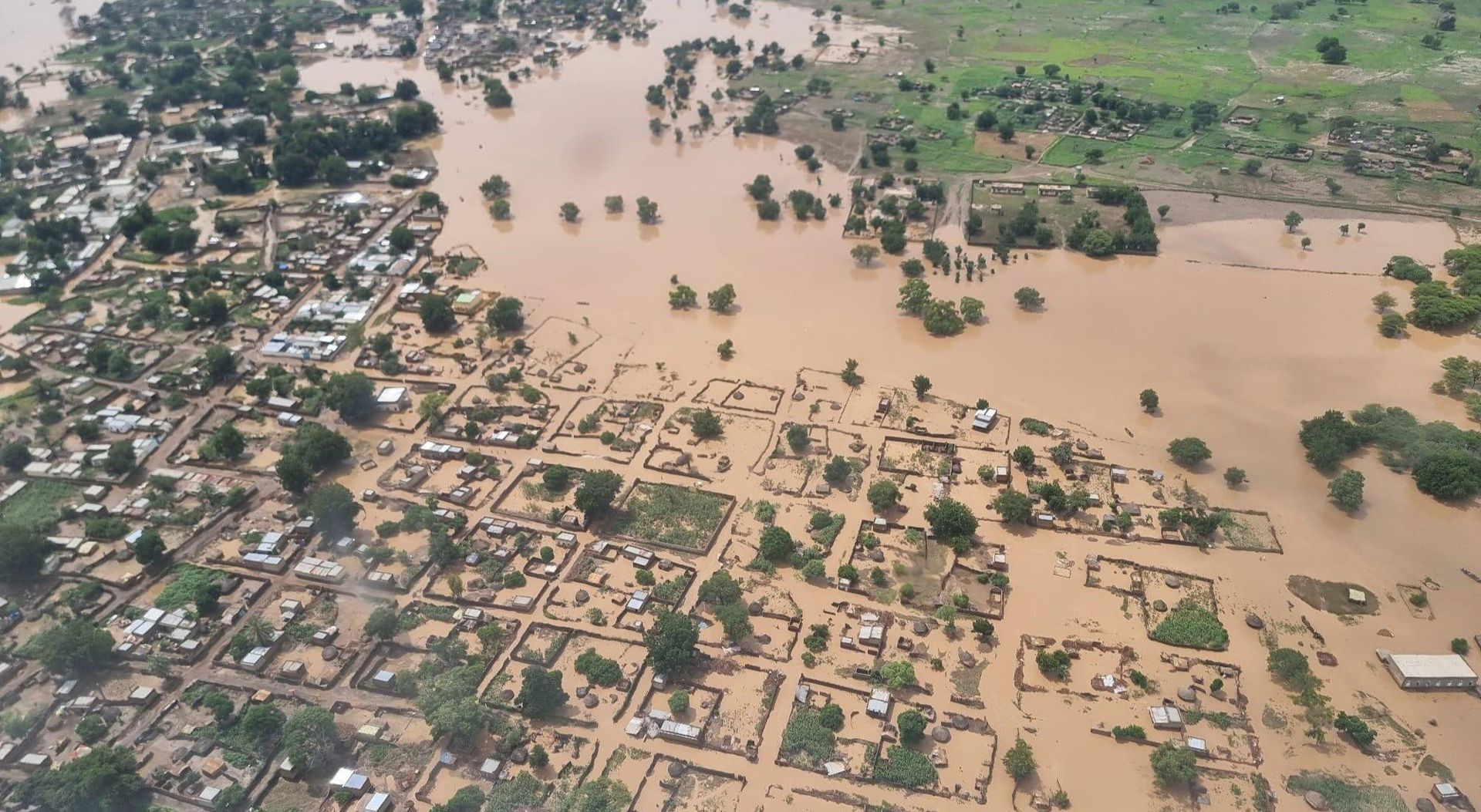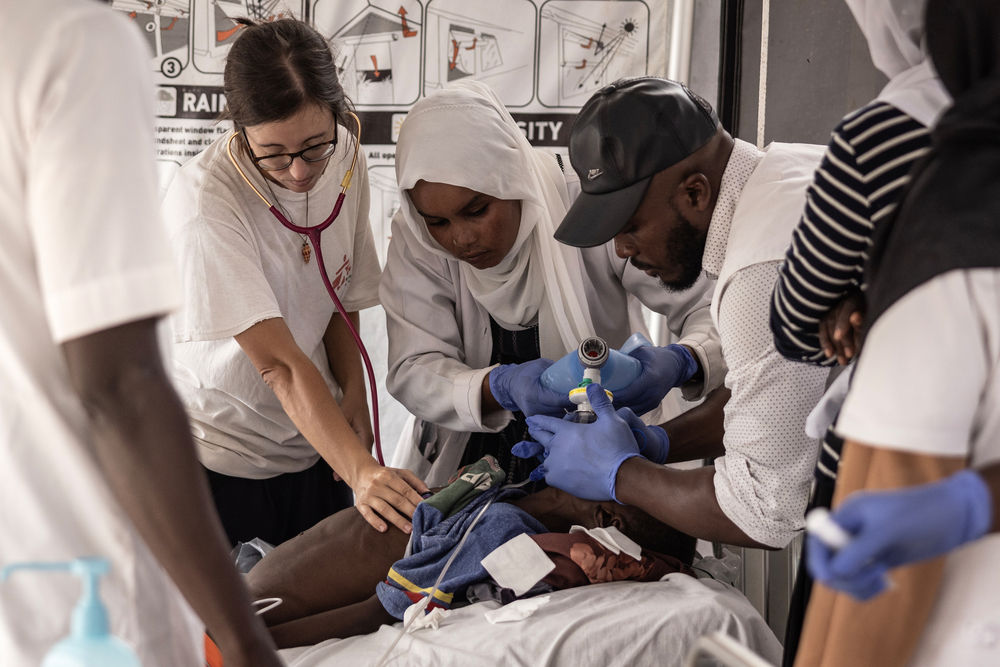A coordinated and rapid response is urgently needed in the decimated town of Koukou, Sila province, in eastern Chad as thousands of people have fled flood waters, seeking refuge on a hill, with desperate shortages of food, shelter, drinking water and healthcare.
Koukou and surrounding villages were hit by heavy rains in early August. Wadi Bahr Azoum river, which runs alongside the town, overflowed on August 5, causing a large part of Koukou to flood on August 6.
On Friday, August 9 the water rose again, but this time much more intensely, resulting in flooding that people have described as unprecedented in living memory. The entire town was devastated with the waters wreaking havoc on people in Koukou and surrounding villages.
“The water came in a huge surge, with high speed, high force. In places, people could not walk anymore, they had to swim,”
Julie Melichar, MSF Sila project coordinator
"We saw people fleeing, panicking that they could not make it out in time. We could hear houses collapsing all around us. We saw people looking at their homes being destroyed in front of them.
Thousands and thousands of people moved from the town to the hill to seek refuge. They tried to take whatever they could with them, but it was very little.”
Many people have lost everything, trapped upon a hill without clean drinking water, food or shelter. MSF teams report that the thousands of people in the makeshift camp include many children, pregnant women and elderly people.
Many wells are flooded and contaminated, with people forced to drink stagnant water. Food stocks have been destroyed in a place where there was already a food crisis before these tragic floods. People have little shelter from the rain and many have been victims of snakebites. The health centre and hospital were flooded and the majority of medical stocks are ruined.
MSF is calling for humanitarian organisations to provide emergency assistance for people in Koukou and the region now, and to assess the needs in surrounding areas. Given the extent of the flooding, solutions must urgently be found to reach affected communities, bring supplies and provide a rapid and coordinated response.
Food and shelter must be an immediate priority, as well as an effective water, sanitation and hygiene response to reduce the risk of disease outbreaks. People may be trapped for some time, with the risk that the floods will rise again even higher.
All MSF staff and their families in Koukou are affected by this disaster but they are working to help their community. In an MSF boat, MSF and local authorities were able to rescue 296 people trapped by the waters.
“Colleagues were calling, telling us they were floating in their houses, asking us to send the boat,” says Melichar. “People’s rafts capsized, they had to seek refuge in trees. All through the night until the morning our boat was helping to rescue people.”
MSF has set up a mobile primary health clinic on the hill and is improving access to drinking water. But this disaster has occurred at the worst possible time, when both malaria and malnutrition rates are at their seasonal peaks.
“We’re treating malaria, acute watery diarrhoea and respiratory tract infections,” says Melichar. “We’re also extending the water system because right now people are drinking contaminated water. But people are facing shortages of everything you can imagine. In this scenario I dread to think what types of health problems can develop, epidemics are a very real threat. We’re very worried. People in Koukou need humanitarian organisations to come to their aid, otherwise this natural disaster will become a humanitarian catastrophe.”
For 3 years MSF has been running a pilot community based project in Sila where the community is at the heart of strategic decision-making, participating as equal partners. The project in Sila works with the community in organising both preventative and curative care for the most common morbidities, including malnutrition, malaria, respiratory diseases and diarrhoea. By equipping and training community health workers and traditional birth attendants, our teams bring medical care closer to communities.



